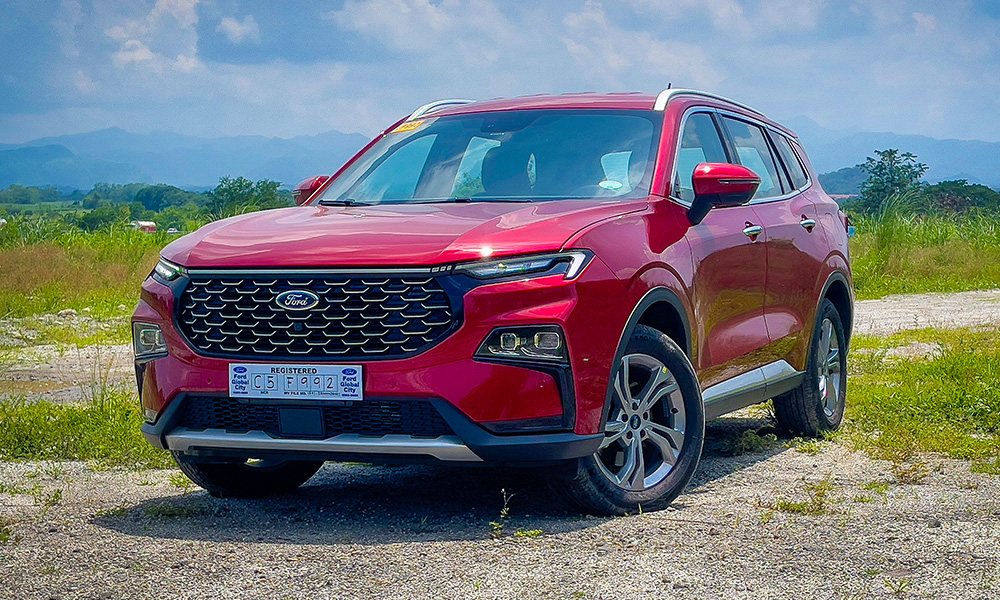
In its more than 100 years of existence, Ford has had a penchant for making iconic models that would shake up not just their respective segments, but the industry in general. The Ranger and the Everest are examples of how a Ford vehicle would become the yardstick against which competitors are measured.
Just to be clear, the Michigan-based carmaker didn’t win it all (obviously). While the previous-generation Territory crossover was good, it remained in the shadows of the Geely Coolray. But that didn’t mean that the Territory was an inferior vehicle to the latter.
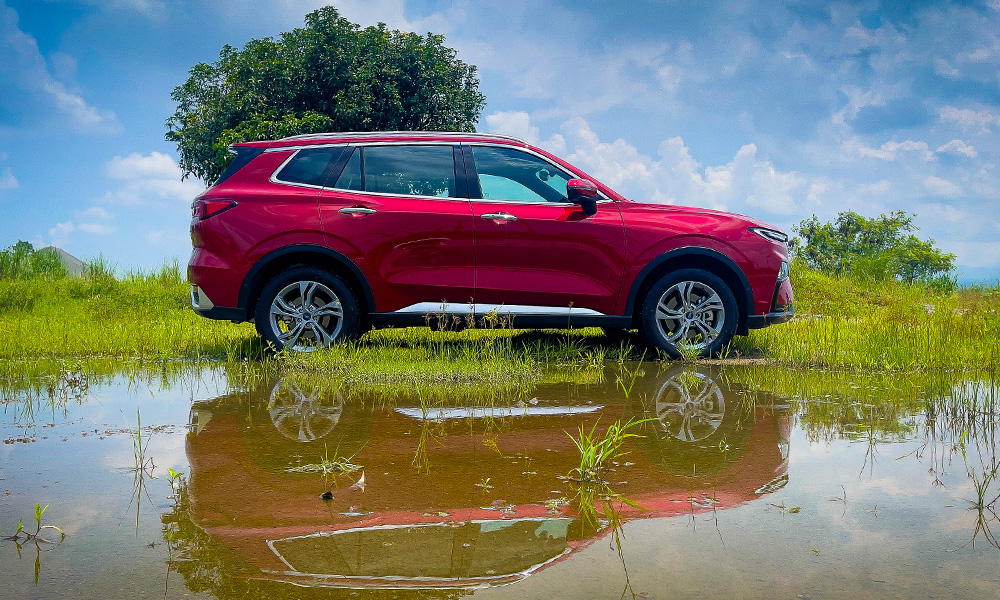
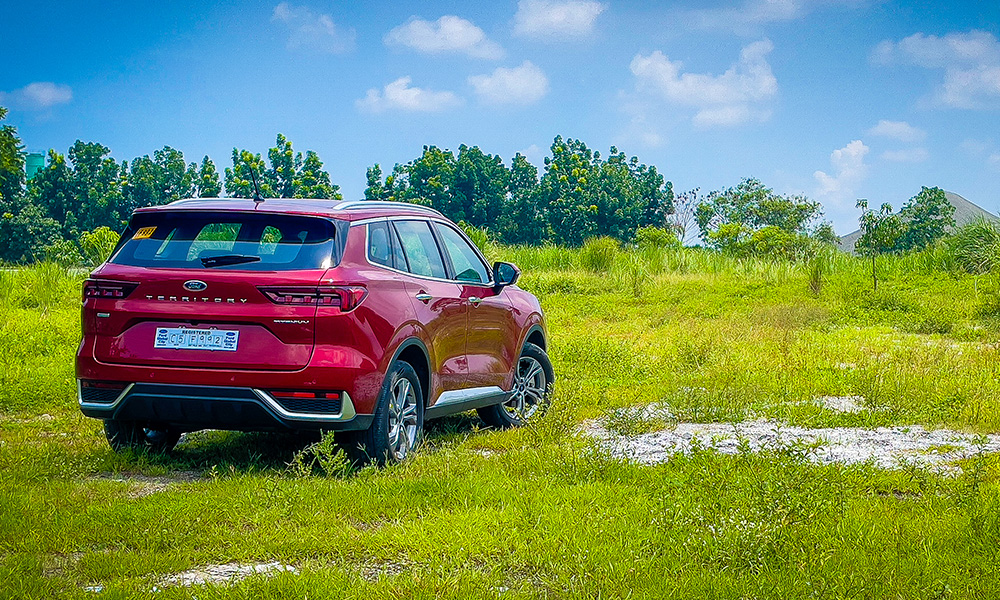
That vehicle was based on the JMC Yusheng S330. Everything was developed by JMC, Ford’s Chinese automaker partner. The 1.5-liter EcoBoost engine was quite punchy, only to be tamed by the rubber-bandish CVT. It was packed with tech, but as a colleague pointed out, it lacked “Ford-ness” to it.
Surprisingly, even if it was launched in our market far later than the Coolray, the car managed to sell well. This gave Ford Philippines another cash cow on top of the Ranger and the Everest.
So, when it was time to come up with the next-generation Territory, Ford seemed to have a chip on its shoulder. How could they make a relatively good compact crossover even better? I found the answer when I was given a couple of days to try out the car.
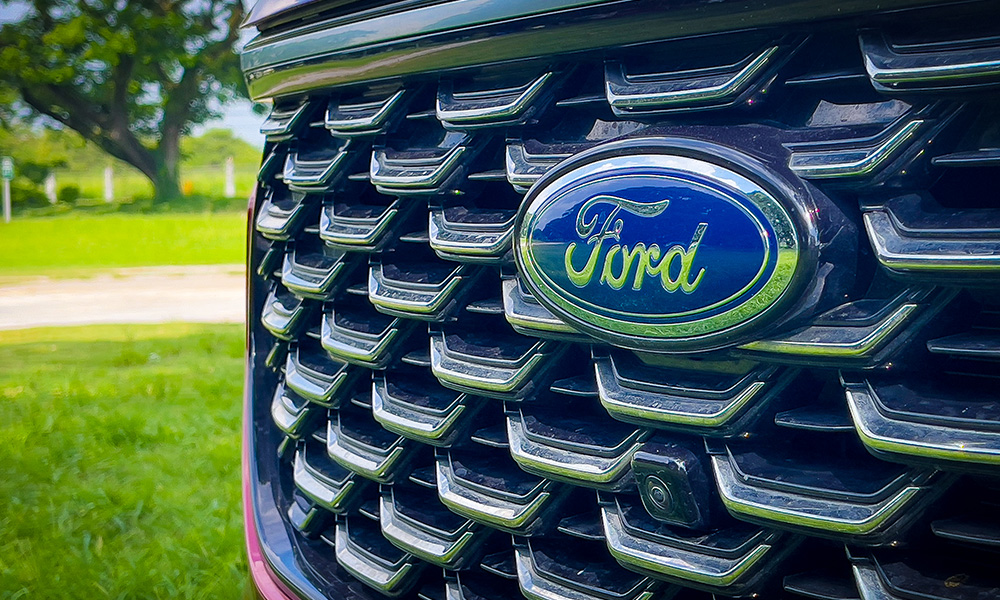
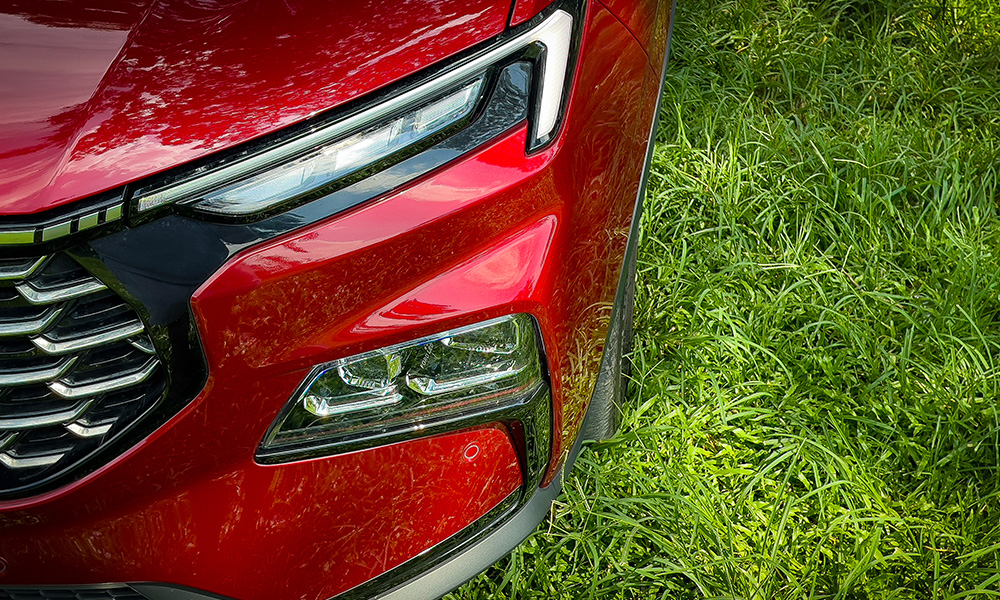
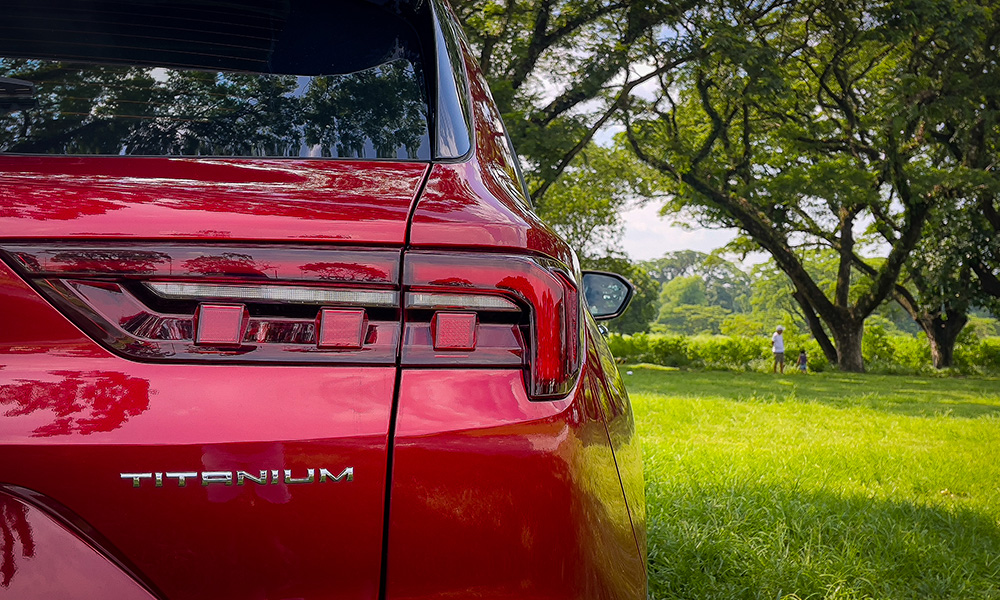
First, the new Territory looks infinitely better than the one it replaces. The new gaping grille has a unique pattern, and is flanked by slim DRLs. The fresh LED headlamp cluster is found lower on the bumper, keeping up with this seeming trend.
Though Ford didn’t put its signature corporate face or design ethos, the second-generation Territory still doesn’t look like a car the Blue Oval would make or sell.
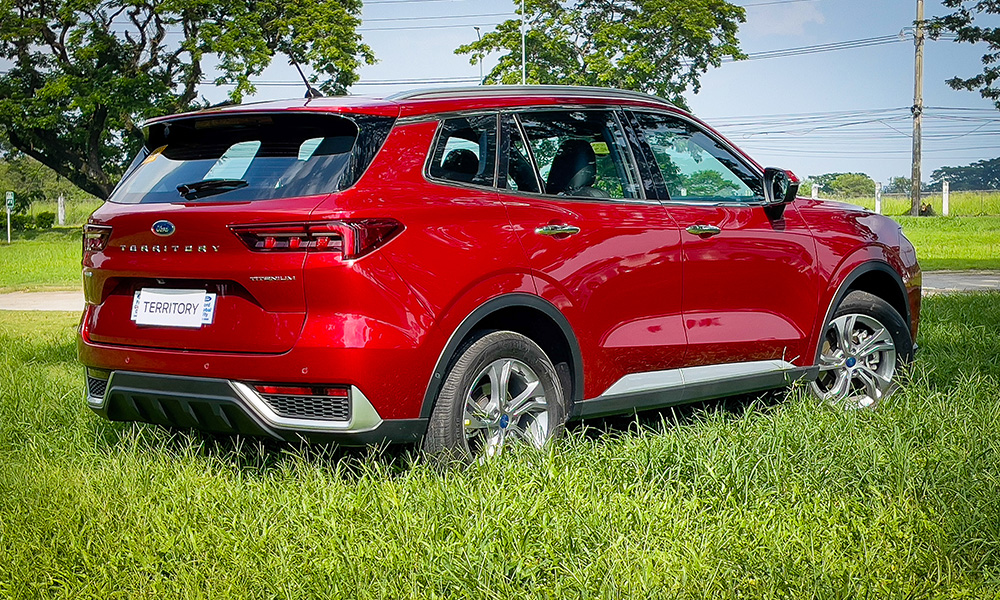
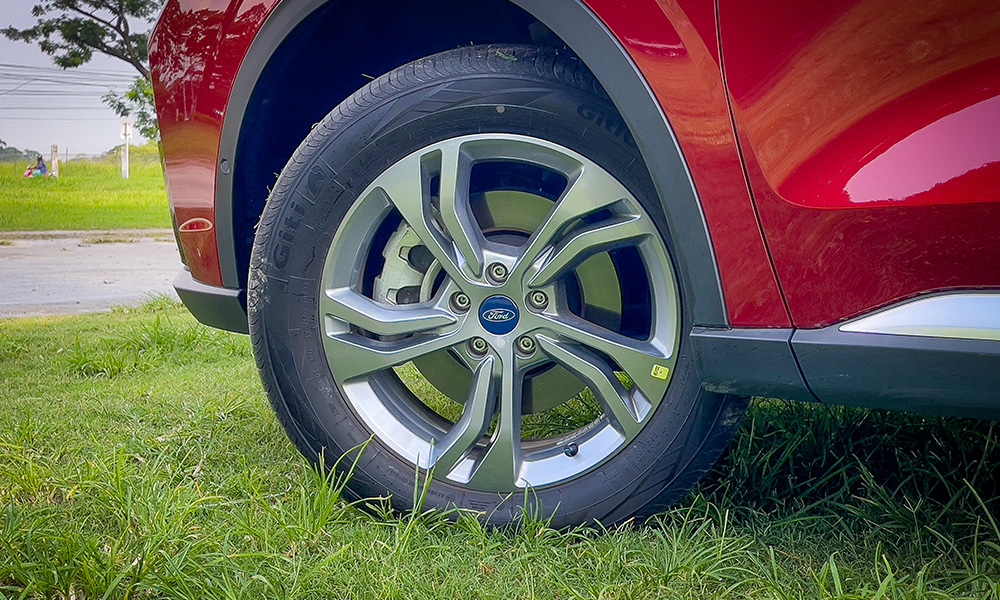
But the tasteful character lines on the sides, the choice of design for these 18-inch wheels, and the rear end’s appearance show that Ford was more involved in designing and developing it.
Unfortunately, the same could not be said for the interior. Besides the Ford emblem on the tiller, the interior has materials that don’t seem to be shared with anything from the American brand’s parts bin.
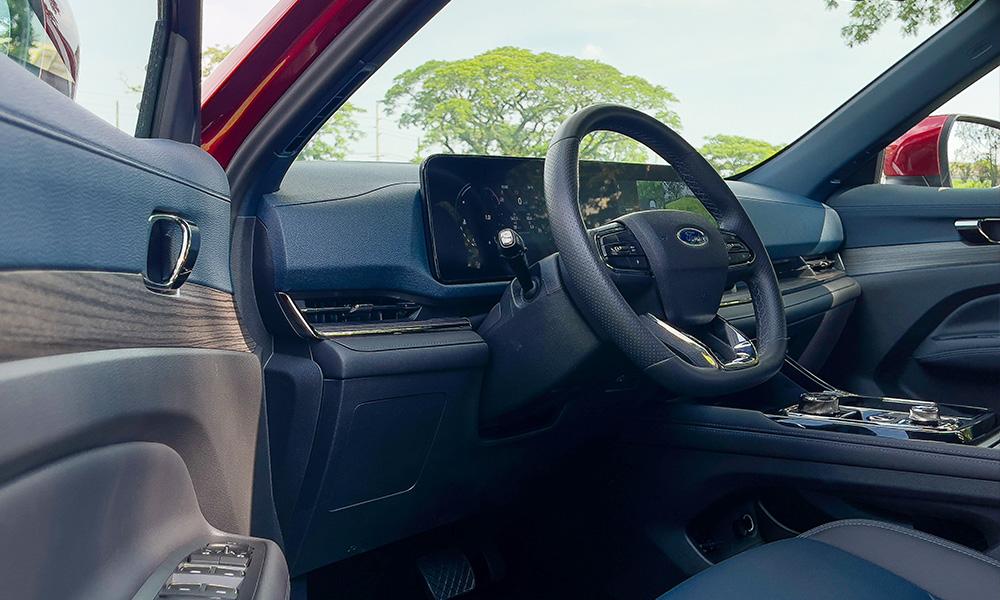
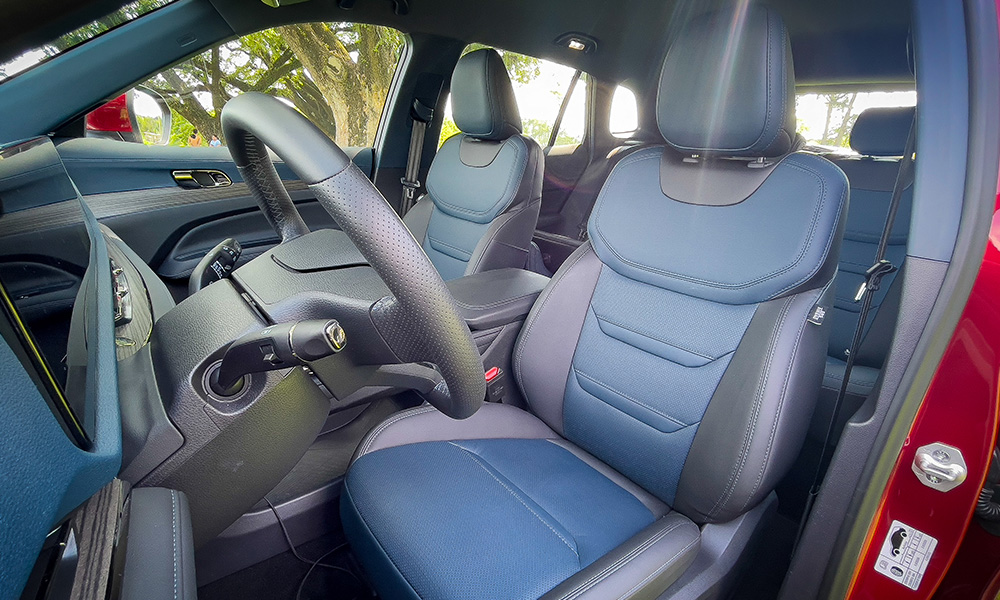
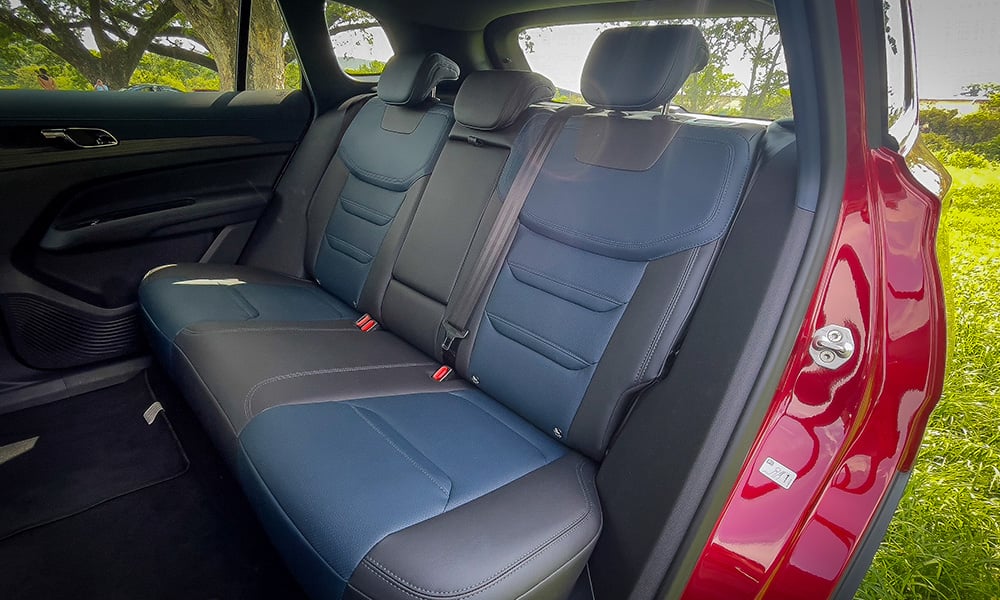
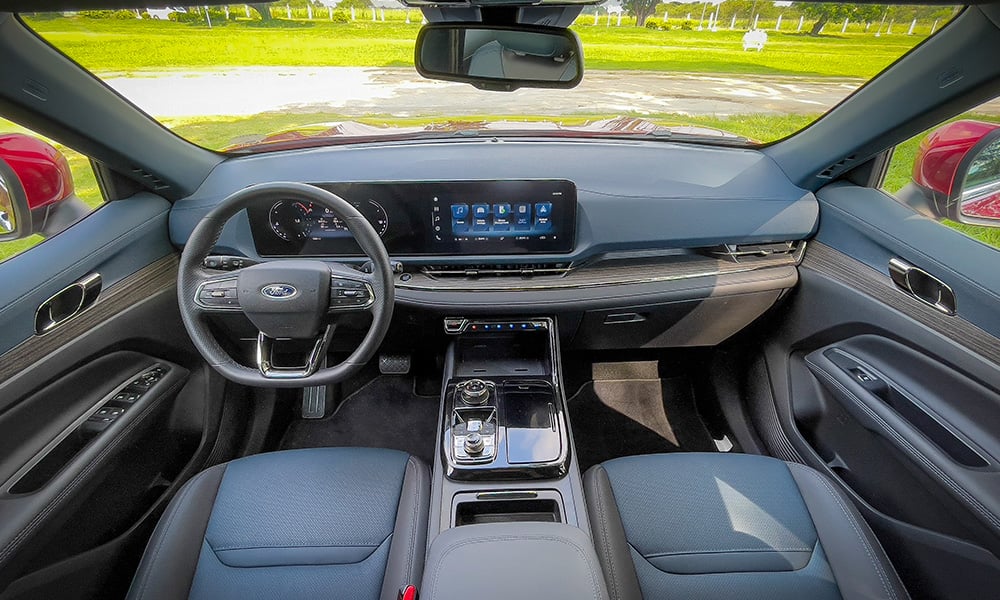
Even so, I particularly love the blue shade on the dash, the door cards, and the seats. Special mention goes to the faux wood trims that wrap around the cabin.
Though it generally still looks like a Chinese-designed and -made vehicle, some touches like the choice and color of materials lend some premium that only Ford can pull off. And since we drove just the “entry-level” Titanium variant, imagine how much better the interior would be in the top-of-the-line Titanium X model.
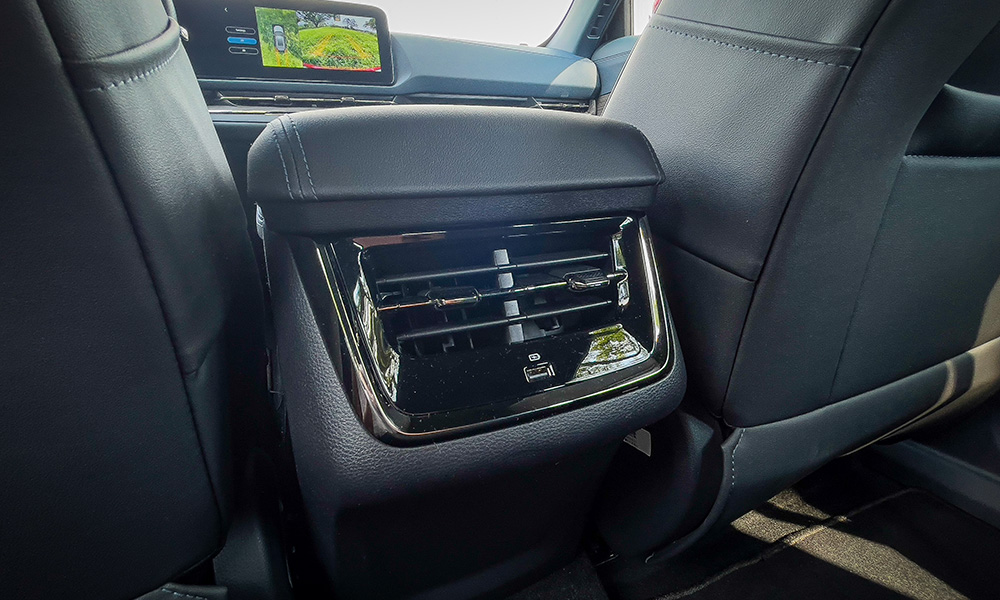
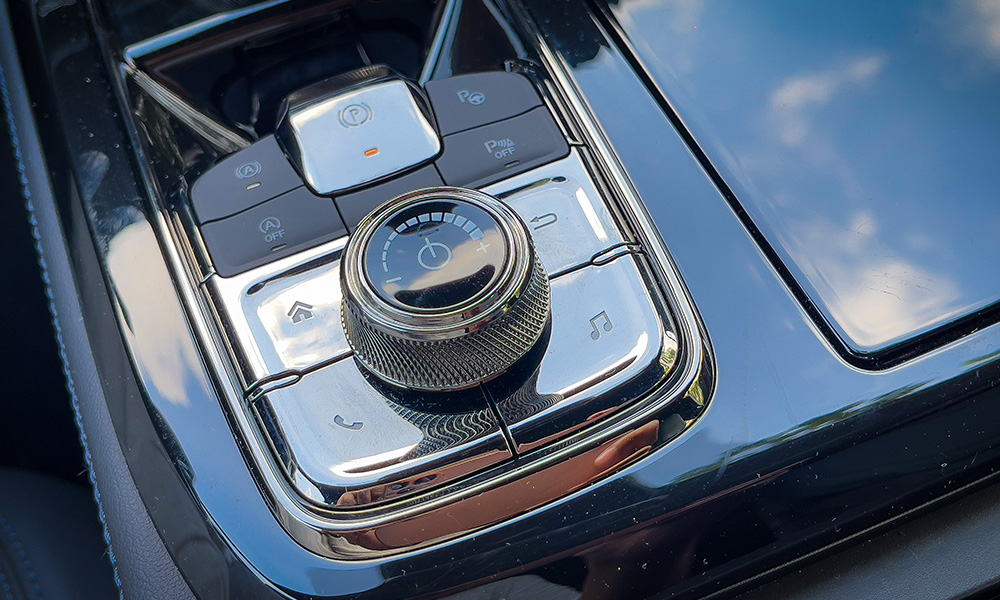
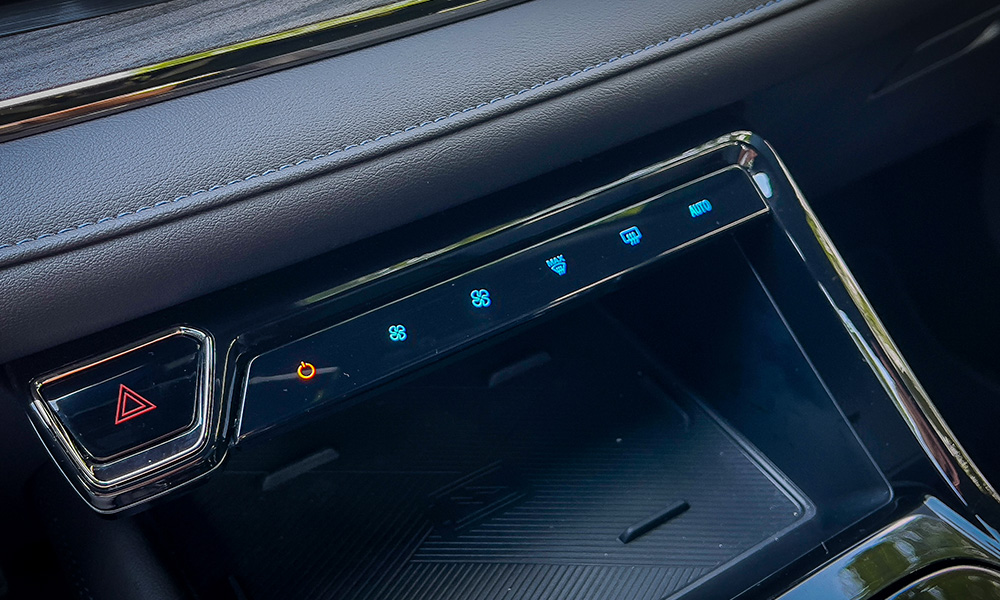
The interior is roomier, thanks to a wheelbase of 2,726mm and a cargo space of 448L. It also has a host of features making it one of the most-equipped compact crossovers on the market today.
Everything is power-assisted. You have a couple of screens, and get the latest in smartphone connectivity with wireless Apple CarPlay and Android Auto. This makes the vehicle one of the most loaded in its segment.
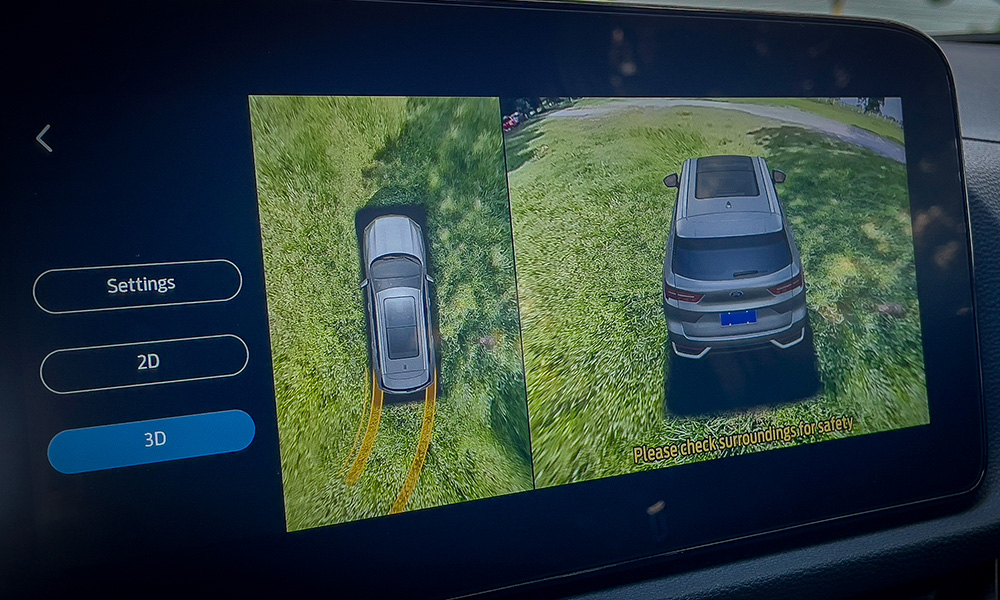
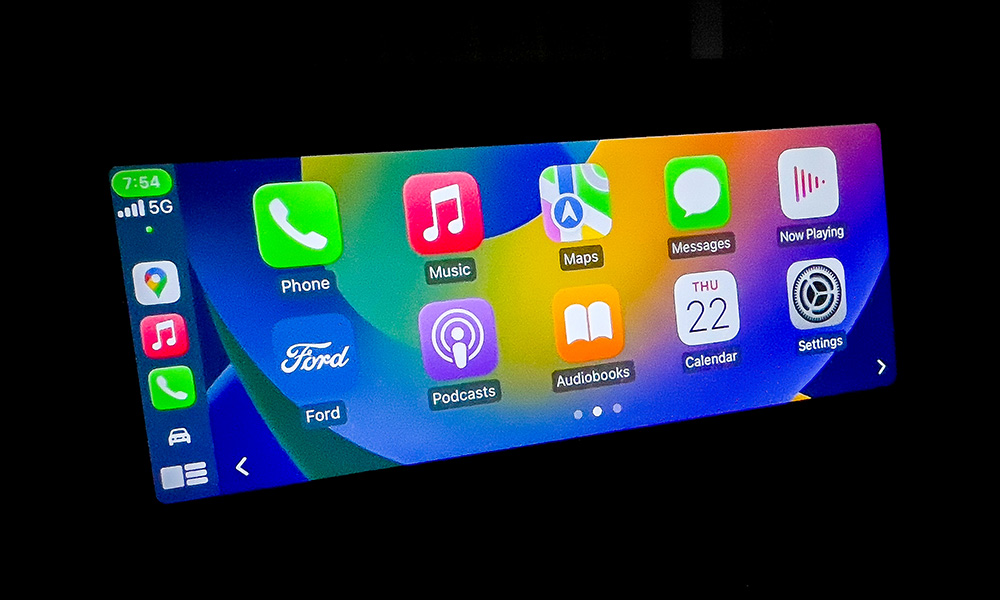
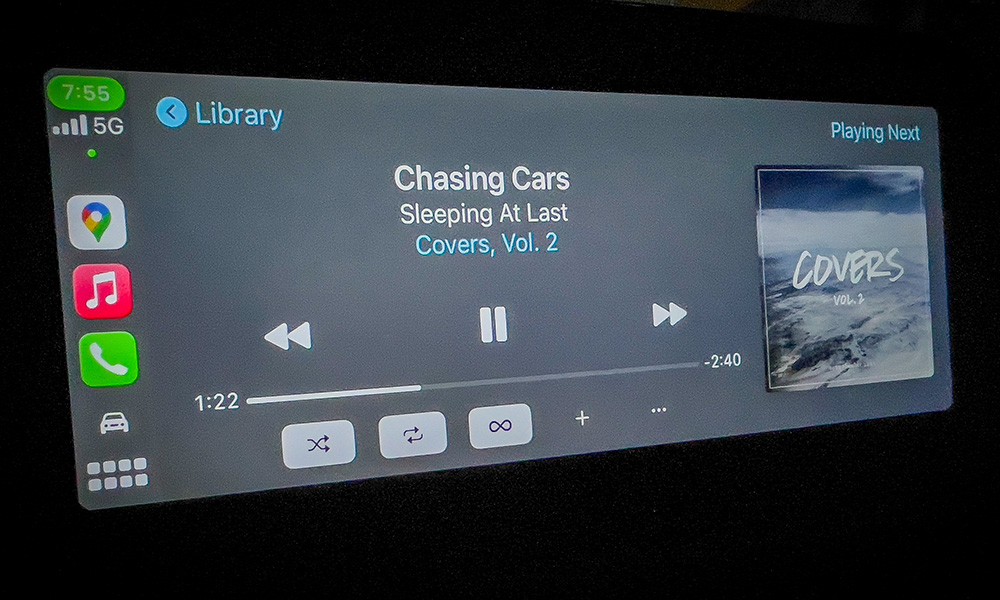
The ride is just right, dealing with our roads’ imperfections well, but offering great handling. If there are things that I didn’t like, it has to be the use of shiny black and chrome bits, particularly the audio controls and some panels on the center console.
There are fingerprint and scratch magnets that may be annoying to obsessive-compulsive individuals. It’s something that likely won’t look good after long-term use.
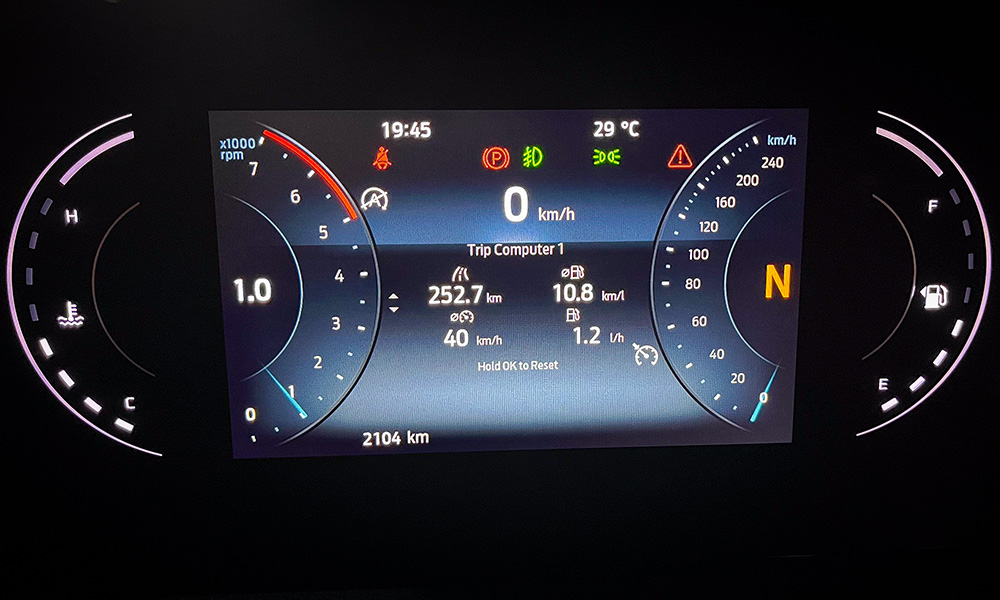
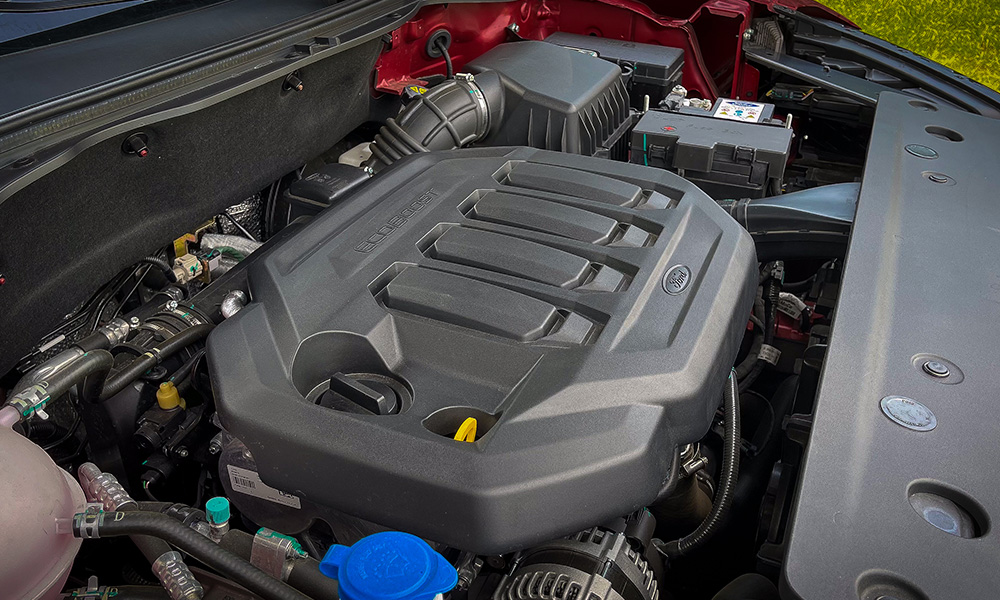
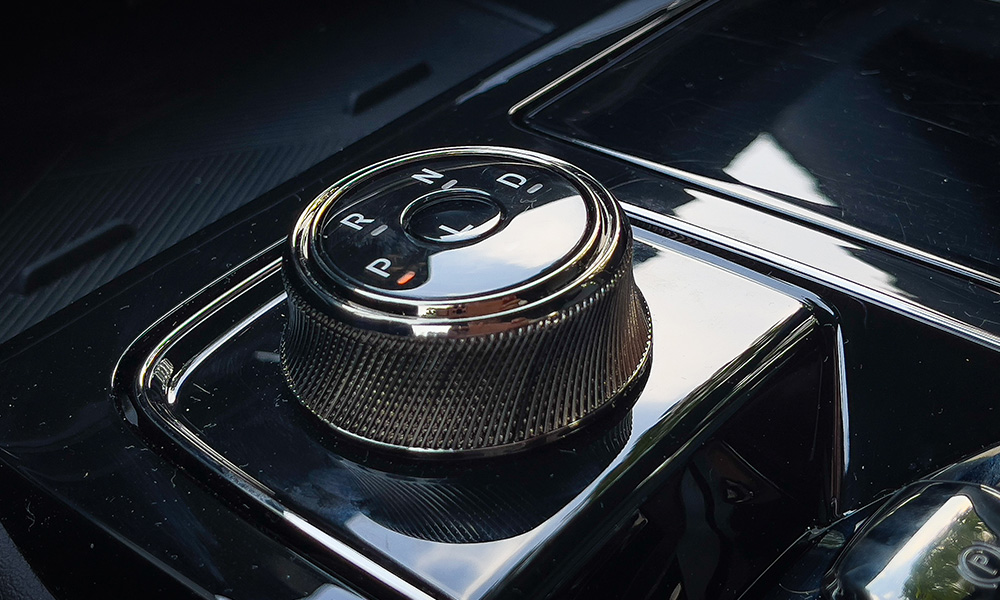
The biggest upgrades the next-gen Territory got must be the powertrain and the safety features. Powering it is a 1.5-liter four-cylinder EcoBoost engine. Ford ditched the CVT in favor of a new seven-speed wet-type dual-clutch automatic transmission.
The new transmission makes good use of all 158hp and 248Nm. A fuel economy of 17km/L is possible if you modulate the throttle properly. It is surprisingly still frugal at 8km/L despite the bad traffic and the long idling times while we shot the car. The crossover picks up speed quite quickly but shifts quite early.
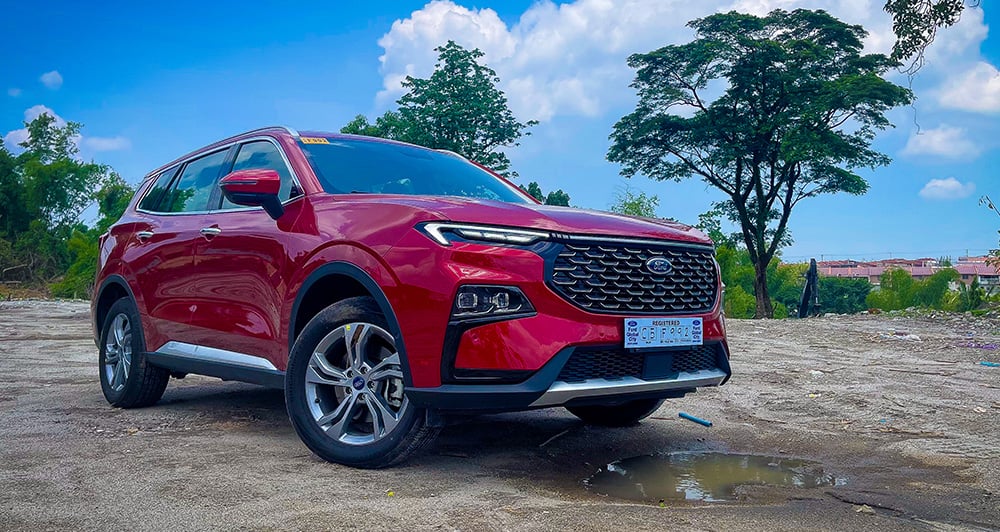
I find the P1,335,000 asking price to be a little too steep, especially since the car lacks Ford’s suite of advanced driver-assist systems and other cool toys that can only be found on the more expensive Titanium X variant.
But the Territory is stylish and quirky, yet mature and refined. The next-gen model gives you much fun, yet remains sensible—yes, you have your proverbial cake and you eat it, too. This explains why we see a lot of them on our roads—this is the second-best-selling Ford.
Despite the influx of newer, better-equipped, and more affordable small crossovers, l won’t be surprised if the next-gen Territory continues to sell well. With good looks, a ton of features, great performance, and that Ford pedigree, the Territory has what it takes to dominate the segment.
FORD TERRITORY TITANIUM
| Engine | 1.5-liter four-cylinder turbo gasoline |
| Transmission | 7-speed dual-clutch automatic |
| Power | 158hp @ 5,400rpm |
| Torque | 248Nm @ 1,500rpm |
| Dimensions | 4,630mm x 1,935mm x 1,706mm |
| Drive layout | FWD |
| Seating | 5 |
| Price | P1,335,000 |
| Upside | Performance and refinement are way better compared to the previous model. |
| Downside | Steep pricing. |


0 Comments